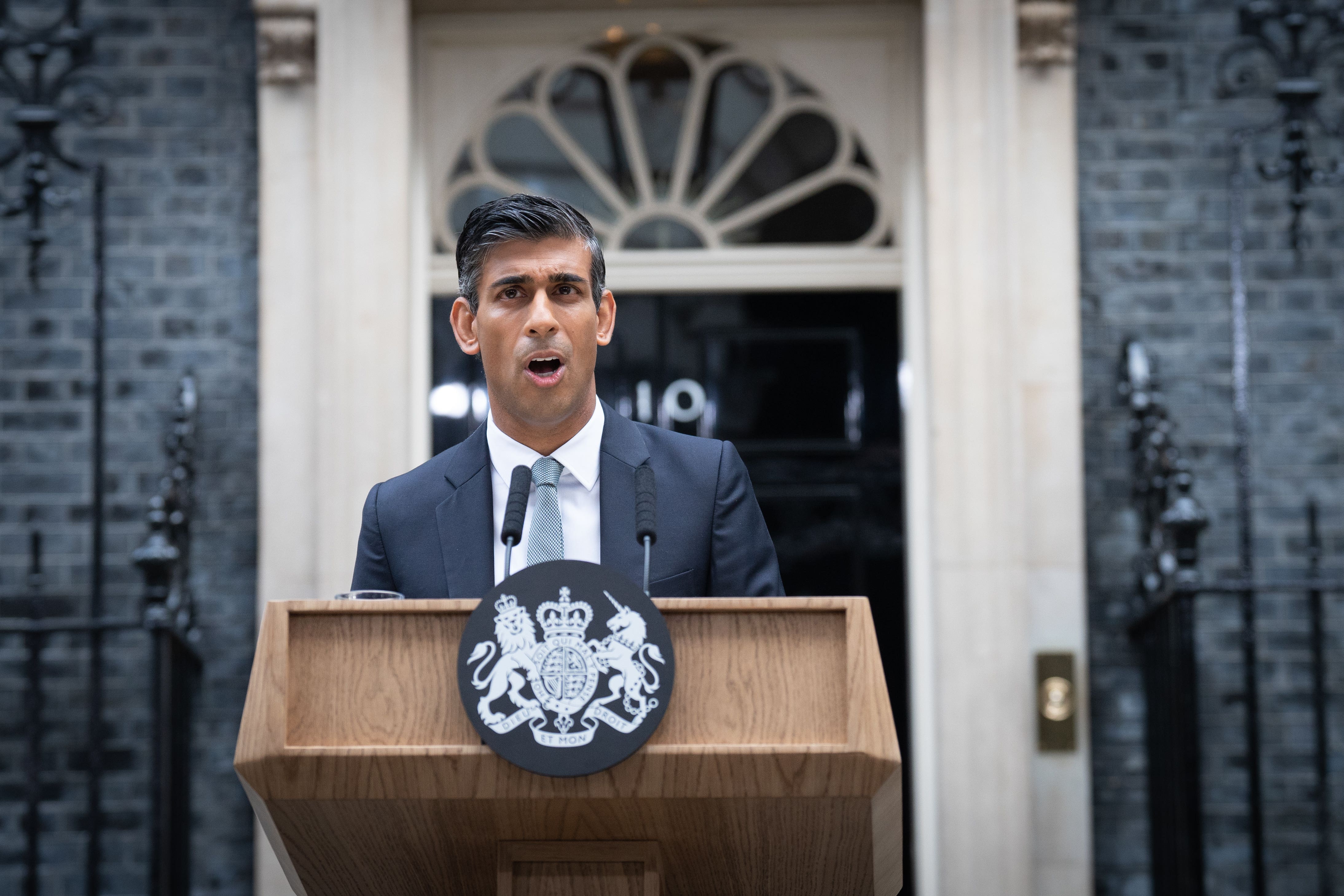The chaos in the UK will happen here if Republicans get their way
Before Trussonomics plunged the UK into economic turmoil, conservatives in America gleefully praised the plan. The idea that Republicans are better on the economy than Democrats is contradicted by objective reality


The past few months in the UK have been tumultuous, to say the least. After just 45 days in office, Liz Truss holds the record for the shortest-serving prime minister in UK history — and Rishi Sunak began appointing his own new cabinet today.
Americans took a quick break from the chaos of our own country to laugh at how a head of lettuce outlasted the UK’s head of government last week. But there’s a warning for Americans in the downfall of Liz Truss. She was pressured to resign after her conservative tax cut proposals sent the UK into economic turmoil. In the US midterms, Americans are faced with a choice of whether to elect conservatives who are promising to do the exact same thing.
Truss rose to power after members of the UK’s Conservative party voted for her based on a proposal for sweeping, unfunded tax cuts that relied on supply-side economics. The tax cuts, which largely benefited the most wealthy, didn’t make corresponding cuts to spending. It was classic trickle-down economics, which has proven to never quite trickle anywhere but into the pockets of the wealthy.
Not only would this proposal ensure ballooning debt, but tax cuts in an inflationary environment are generally always a terrible idea to anyone with a basic understanding of economics. This past summer, Rishi Sunak — the same man who just replaced Truss as PM —called Truss’s proposals "fairytale economics" that would cause an "inflationary spiral." What followed proved Sunak right, and ended Truss’s political career.
After Truss’s finance minister Kwasi Kwarteng announced the tax cuts in parliament, financial markets immediately plunged. The UK pound dropped in value toan all-time low against the US dollar. Government bonds declined and yields spiked. UK pension funds tied to bonds were under threat. Mortgage interest rates increased. The International Monetary Fund issued arebuke urging Truss to "re-evaluate" her economic plan, warning: "Given elevated inflation pressures in many countries, including the UK, we do not recommend large and untargeted fiscal packages at this juncture."
In the immediate aftermath, Truss defiantly refused to take any responsibility. But the situation became untenable, so she began to roll back some of the tax cuts on the most wealthy. It wasn’t enough. Financial instability continued. Then, in an abrupt move, she fired her chancellor, Kwarteng. But the damage was done. Truss had lost the confidence of the Conservative party. She was pressured to resign.
Before Trussonomics plunged the UK into economic turmoil, conservatives in America gleefully praised the plan. After Truss initially announced these plans in September, former Trump economic advisor Larry Kudlow was ecstatic on Fox Business. “The new British prime minister, Liz Truss, has laid out a terrific supply-side economic growth plan which looks a lot like the basic thrust of Kevin McCarthy’s Commitment to America plan,” he said. "Liz Truss is basically operating a Reagan-Thatcher-Trump economic policy."
When it comes to the similarities between US Republicans and Liz Truss’s economic policies, Kudlow was right. House Minority Leader Kevin McCarthy (R-CA) is promising to double down on the GOP’s decades of trickle-down economics and extend the Trump tax cuts if Republicans win the midterms. The Washington Postreported: "Many economists say the GOP’s plans to expand the tax cuts flies against their promises to fight inflation and reduce the federal deficit, which have emerged as central themes of their 2022 midterm campaign rhetoric. Tax cuts boost inflation just like new spending, because they increase economic demand and throw it out of balance with supply."
It’s important to note that the US economy is larger than the UK’s, the dynamics are different, and there certainly wouldn’t be an apples-to-apples scenario with the impact of more tax cuts — but the economic impact would surely be negative. Americans who have been paying attention to the chaos in the UK need to think clearly about the economic policies they’re being promised in the midterms by Republicans.
Any push for more tax cuts on the part of Republicans would reduce the effectiveness of measures that reduce inflation, like the Federal Reserve’s rate hikes. Aside from the very clear inflationary fallout of what McCarthy has promised, there are clear impacts when it comes to income inequality and overall economic stability.
The London School of Economicsstudied 50 years of tax cuts, between 1965 to 2015, and found that trickle-down economics mostly works to help the rich get richer. Not to mention, this brand of conservative economic policy — loose regulation and lower taxes for the wealthy — has led torepeated cycles of Democratic administrations being forced to save the economy from recessions overseen by their Republican predecessors. The idea that Republicans are better on the economy than Democrats is contradicted by objective reality.
If Americans think that a Kevin McCarthy-led House majority or a Mitch McConnell-led Senate would do anything to address the economic challenges we face, think again. We would likely face the obstruction of any Biden economic proposals and the pursuit of conservative economic proposals very similar to what we just saw send the UK into near-economic calamity.
As we see from growing election denial authoritarianism, right now Republicans are primarily focused on maintaining and expanding their power. They have plenty of rhetoric, but few plans. And the few plans they do have involve eroding rights, cutting the social safety net, and cutting taxes for the wealthy — none of which will do anything good for the economy. MSNBC’s Chris Hayes put it well: “Kevin McCarthy’s House (if Republicans win) is going to make the Tories look like a model of competence and cooperation.”
What happened in the UK isn’t just an indictment of the UK’s Conservative Party and Liz Truss’s poor leadership. It’s an indictment of the global conservative economic agenda. The choice this November is clear. Americans should learn from Truss, not follow in her footsteps.

Join our commenting forum
Join thought-provoking conversations, follow other Independent readers and see their replies